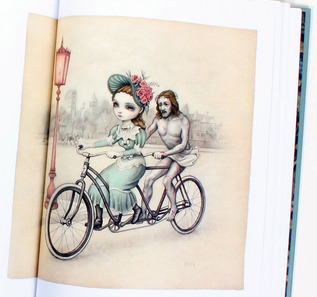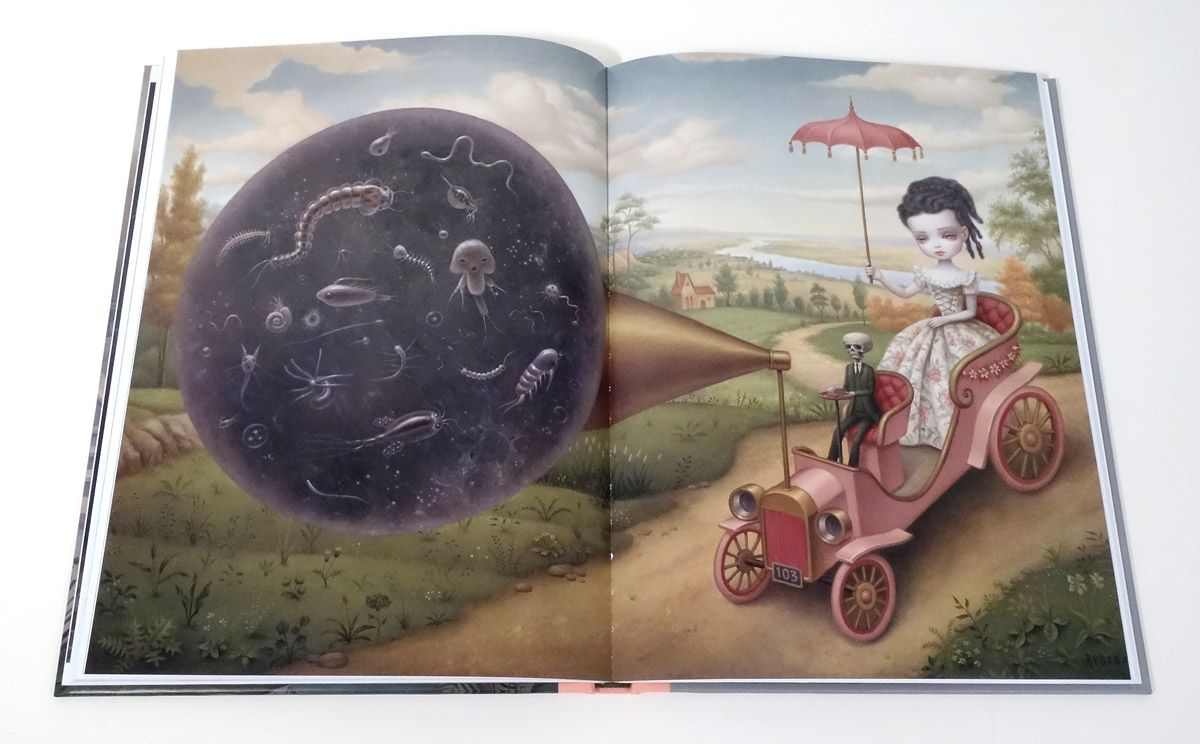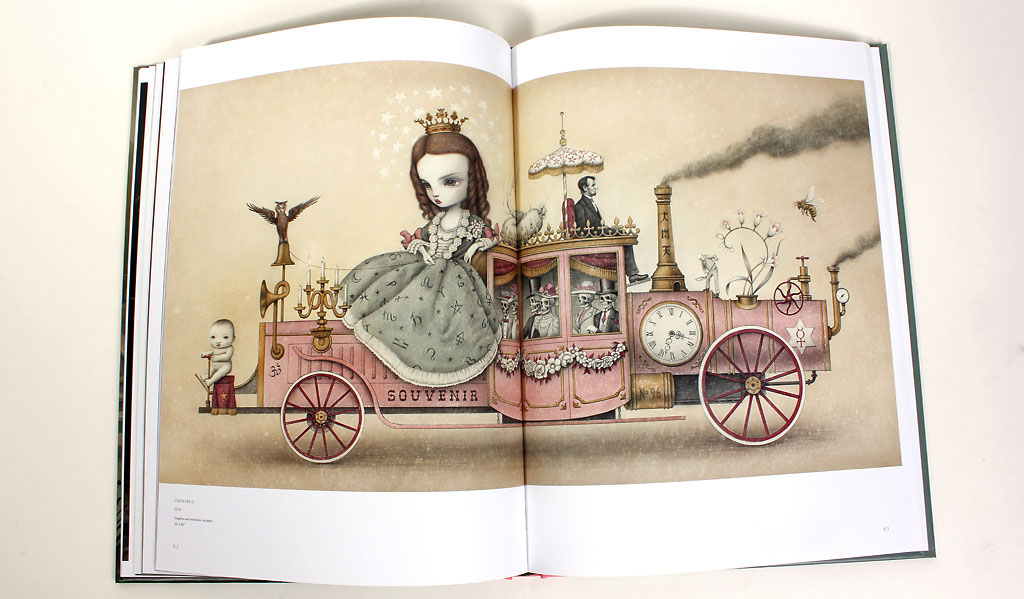Mark Ryden: The Gay 90’s
The Pop-Surrealist returns with a series of illustrations highlighting turn-of-century problems



Pop-Surrealist Mark Ryden introduced his creepily precious characters to the contemporary art world in the 1980s to wide acclaim, and in his sixth book, “Mark Ryden: The Gay 90’s,” the artist returns to his signature doll-like figures, using them to explore the conflict of ideals around the end of the 1800s. In this book, the artist’s provocative sketches, sculptures and paintings toy with our preconceptions of societal and historical norms by mixing incongruous styles, objects and figures while bringing those uncomfortable paradoxes to the forefront of our consciousness.
As the 20th century began there was a world of competing influences as the farm gave way to the city, and Ryden shows his fascination with this awkwardly transitional moment in time by creating a series of bizarre vignettes that cover everything from the negotiation of religion’s role in this newly industrialized world and the influence of globalization to scientists’ renewed interest in medicine and biology. Religious icons are scattered throughout Ryden’s work, but in this series, Jesus becomes an important recurring figure, portrayed as both a lover and a sufferer—we see his mangled figure seamlessly mixed into the world of Ryden’s doe-eyed women. Neutralized by Ryden’s pastel palette and often expressionless characters, Jesus is transformed into yet another hapless, passive effigy in the artist’s bleak landscapes, hinting at Ryden’s own hesitation about power of religion.

As the 1900s began, there was arguably no person more influential than Abraham Lincoln, and in this series Ryden shows an intense interest in exploring Lincoln’s hardened visage. Like with Jesus, he plays with Lincoln’s stoic portrait by placing him in unseemly situations—we see Lincoln as everything from a butcher wielding a cleaver to a suitor grinding out meat for his date. These absurdist portrayals create a distinct unease that seemingly aim to dwarf our preconceived, patriotic associations.

With the rise of industrialization, biology and medicine became a big concern for scientists who were battling an array of diseases in a rapidly changing urban landscape. Ryden explores this quick conversion by splicing the pastoral with the industrial in visually awkward mash-ups. For example, in “Cone of Memory” we see a morose girl riding through the countryside in the back of a Model-T with the car’s headlight projecting an image of bacteria under a microscope. The grim reality of the disease balks against the dreamy world of Ryden’s dolls, creating a sense of discomfort that was common to the period as the romance of the Victorian era was forced to reconcile with the realities of a newly industrial yet poorly sanitized world.

Suited for those both familiar with Ryden’s work and those who are just getting acquainted, this book directs us to the crux of what makes Ryden’s work so delectable, its ability to bring together disparate things and create something that showcases both the beauty and the darkness of those encounters. “Mark Ryden: The Gay 90’s” is now available for pre-order from Amazon for $25.
Images by Kat Herriman.












